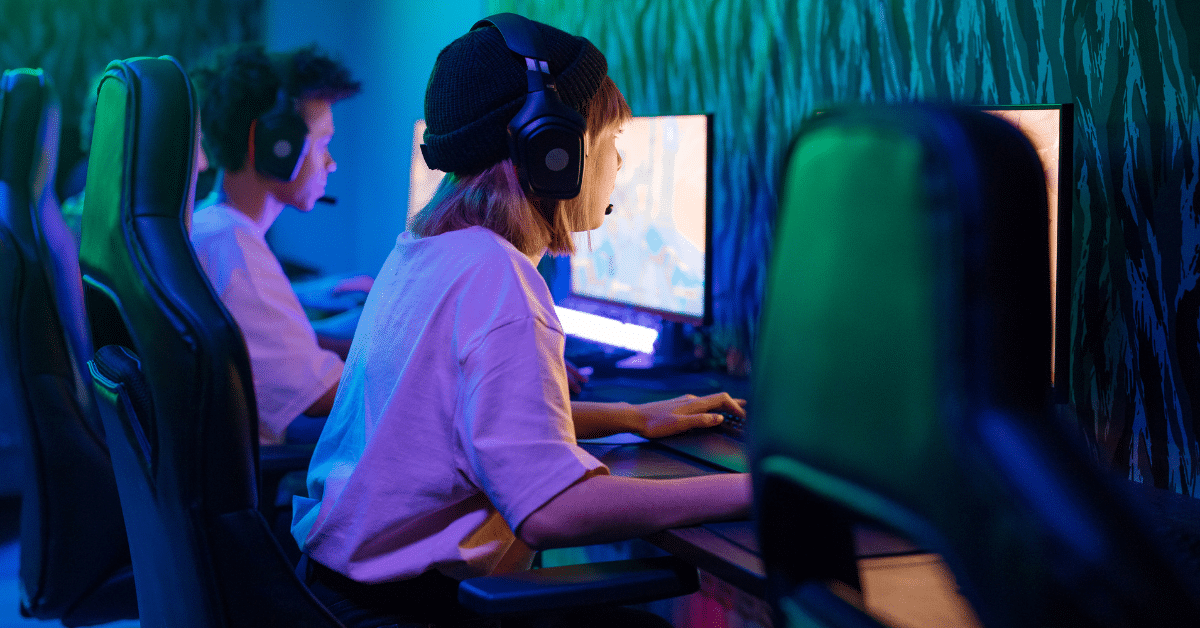It used to be video gaming was a man’s world (or at least a boy’s world). No longer. As video gaming has evolved from a niche hobby into a global cultural and financial force, women of all ages are more and more a part of it. In fact, today nearly half of all gamers are female, challenging long-held stereotypes and reshaping what the gaming community looks like. But with this growing female presence comes the need to explore the unique mental and emotional impacts female gamers experience. While video games can be a source of empowerment, connection, and creativity, many women gamers face challenges in these spaces that can affect their mental health. Understanding these experiences is key to fostering a more inclusive, supportive gaming culture for everyone.
1. The Psychological Benefits of Gaming for Women
Stress Relief and Cognitive Stimulation
Gaming is a way many people, including women, unwind, and can serve as a healthy escape and a tool for managing stress. Strategy games, puzzle-solving adventures, and immersive storylines stimulate the brain and provide a break from the pressures of life.
Online Friendships and Social Connections
Games have always been a way for people to connect. In the modern age, multiplayer games and streaming platforms allow women to build meaningful connections, form communities, and find like-minded peers. For many, gaming is not just a hobby but a vital social outlet.
Representation and Identity-Building
Playing as strong, complex female characters can empower women gamers and help them explore different aspects of their own identity. When women see themselves represented in games, it strengthens their self-esteem and fosters their emotional resilience.
2. Common Mental Health Challenges
Harassment and Gender-Based Toxicity
Unfortunately, like in so many other arenas where men are traditionally the dominant gender, many women face sexism, harassment, and verbal abuse in online games and chatrooms. This hostile environment can lead to increased anxiety, depression, and feelings of alienation.
Anxiety and Self-Esteem Issues
Being repeatedly targeted or dismissed because of gender can erode a female gamer’s confidence. How couldn’t it? As such, constant vigilance and fear of harassment may lead some women to hide their identity or avoid voice chat altogether.
Pressure to Perform or “Prove” Themselves
In male-dominated gaming spaces (most of them), women often feel compelled to outperform their male peers to be taken seriously. This unspoken demand can lead to burnout, performance anxiety, and emotional fatigue for female gamers.
3. Emotional Labor in Gaming Spaces
Navigating Toxic Environments
Female gamers often carry the additional burden of managing uncomfortable or aggressive interactions. Whether it’s moderating conversations, standing up to harassment, or educating others about respectful behavior, this emotional labor can take its toll.
Microaggressions and Cumulative Impact
Even subtle, everyday slights—like being ignored in voice chats or having skill questioned—add up over time. These microaggressions can cause chronic stress, impacting mood, sleep, and overall mental well-being.
4. Support Systems and Safe Spaces
Women-Led Gaming Communities
In response to toxicity, many women in gaming are building their own spaces—Discord servers, Twitch streams, and clans—where respect and support for female gamers is prioritized. These communities are essential for mental wellness and belonging.
Mental Health Advocacy in Gaming Groups
Some female-focused groups go beyond community building—actively promoting mental health awareness through open discussions, peer support, and collaborations with mental health professionals. This is an example of women in gaming at its best.
Inclusive and Empowering Games
Games designed with diverse characters, narratives, and values can offer comfort and inspiration for female gamers. Titles that celebrate empathy, creativity, and inclusivity resonate deeply with female players and promote emotional health.
5. How the Industry Can Help
Better Moderation and Reporting Tools
When it comes to video games and mental health, game developers can help protect players by investing in stronger reporting systems, and even AI-powered moderation tools, that address abuse quickly and fairly.
Diversify Representation in Development
Bringing more women into game design, development, and leadership roles ensures more inclusive content and respectful community guidelines.
Promoting Mental Health in Gaming Culture
Game companies and platforms can use their significant influence to destigmatize mental health, support wellness initiatives, and amplify the growing number of voices calling for positive change.
A Fun Space for the Female Face
Female gamers bring as much creativity, skill, and passion to the gaming world as their male counterparts. As such, they deserve to feel safe and supported, and they deserve to have fun, which is the point of all gaming, right? As we continue to explore the intersection of gender and mental health in gaming, it’s vital that we create spaces that prioritize inclusion, respect, and emotional well-being. By listening to women’s experiences and taking concrete action, we can build a gaming culture that uplifts everyone and excludes no one, something we’re big fans of here at Advanced Behavioral Health. Learn more.
